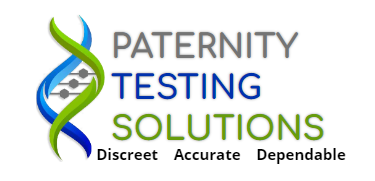Get Answers to Frequently Asked DNA Testing Questions From Our Frisco, TX, Experts!
Prenatal & Postnatal DNA Testing
1. Can a prenatal paternity test harm the baby or mother?
No, our non-invasive prenatal paternity test involves only a blood draw from the mother and a buccal swab from the alleged father, posing no risk to either the mother or the unborn baby. The mother must be at least seven weeks pregnant to utilize this option.
2. What is the difference between prenatal and postnatal paternity testing?
Prenatal testing is conducted before the baby is born, while postnatal testing is done after birth using samples from the baby (like a buccal swab) and the potential father.
Immigration DNA Testing
1. Is DNA testing required for immigration cases?
DNA testing is often used when documentation of a biological relationship is unavailable or insufficient. Many immigration authorities, including the U.S., accept DNA tests as proof of familial relationships.
2. What type of DNA tests are used in immigration cases?
A paternity, maternity, or sibling DNA test is often performed. An accredited lab conducts these tests to meet the legal standards required for immigration applications.
Deceased Postmortem DNA Testing
1. Can a paternity test be performed if the father or mother is deceased?
Yes, DNA testing can still be performed using samples from the deceased individual, such as hair, bone, or stored tissue samples, provided they are available.
2. What if no biological samples of the deceased are available for testing?
In cases where no samples are available, kinship testing can still be conducted using close biological relatives of the deceased, such as parents or siblings. Whether these tests would be accepted would depend on a case-by-case evaluation.
Legal DNA Testing
1. What makes a DNA test “legal” for court purposes?
A legal DNA test requires strict chain-of-custody procedures, including identification verification and proper documentation, to ensure the results are admissible in court.
2. Can legal paternity test results be used for child custody or support cases?
Legal DNA test results are generally accepted in family court cases involving child custody, support, and other legal matters.
At-Home DNA Testing
1. Is an at-home DNA test as accurate as a legal paternity test?
Yes, the testing itself is equally accurate. However, the results cannot be used legally because at-home DNA tests do not follow strict chain-of-custody procedures.
2. How do I collect DNA samples for an at-home paternity test?
At-home DNA tests typically require a simple buccal (cheek) swab from both the child and the alleged father, which is then mailed back to the lab for analysis.
Additional Q&A
How accurate is paternity testing?
Our modern DNA testing is highly accurate, with a 99.9% probability of confirming paternity when the man is the biological father and a 0.00% probability when he is not.
Can a paternity test be done before the baby is born?
Yes, prenatal paternity testing is available. We offer a non-invasive prenatal paternity test, which involves a simple blood draw from the mother and a buccal swab from the alleged father. This method is safe for both the mother and the unborn baby, unlike invasive procedures such as amniocentesis or chorionic villus sampling (CVS), which carry some risks.
Do both parents need to be tested?
I am informing you that testing the mother is not required but recommended. Including the mother’s DNA can help clarify the results, reducing the potential for any misinterpretation. All samples are processed together, and the results are provided in a single report.
How long does it take to get results?
Paternity test results are usually available within three business days after the lab receives the samples. Results are typically ready within five business days for non-invasive prenatal paternity tests. Expedited options are available for those who need results faster.
Do you know if paternity testing is confidential?
Yes, all paternity tests are handled with complete confidentiality. Accredited labs ensure that both the results and personal information are protected.
What if the results are disputed?
Additional testing or legal action may be necessary in a dispute. Courts may order further testing or use the results in child custody or support cases.
Are there legal paternity tests?
Legal paternity tests follow strict chain-of-custody protocols to ensure the results are court-admissible. These tests require identification verification to confirm the legitimacy of the samples and the results.
What is the Peekaboo test?
The Peekaboo test is an early gender DNA test that allows expectant parents to determine the gender of their baby as early as seven weeks into pregnancy. It is a non-invasive test that requires a small blood sample from the mother, which is then analyzed for fetal DNA to determine whether the baby is male or female. The Peekaboo test is famous for its early detection capability. It is often used by parents who are eager to find out the gender of their baby before traditional ultrasound methods can provide this information.
It is safe for the mother and baby, with results typically available within a few days.
I’m planning a gender-reveal party! Should I schedule it for when my test results are due?
We know how vital the Peekaboo test is for our customers, so we strive to deliver results quickly. However, it’s essential to account for any potential shipping delays or the possibility of needing additional sample testing. To avoid surprises, we recommend waiting until you’ve received your test report before setting a date for your gender-reveal party.
Is the Peekaboo early gender test safe for my pregnancy?
Yes, the Peekaboo gender test is safe for both the mother and baby. It’s a non-invasive test that only requires a small blood sample from the mother.
Have more questions? Let our DNA Testing experts help!
Business Hours
- Monday
- -
- Tuesday
- -
- Wednesday
- -
- Thursday
- -
- Friday
- -
- Saturday
- -
- Sunday
- -










